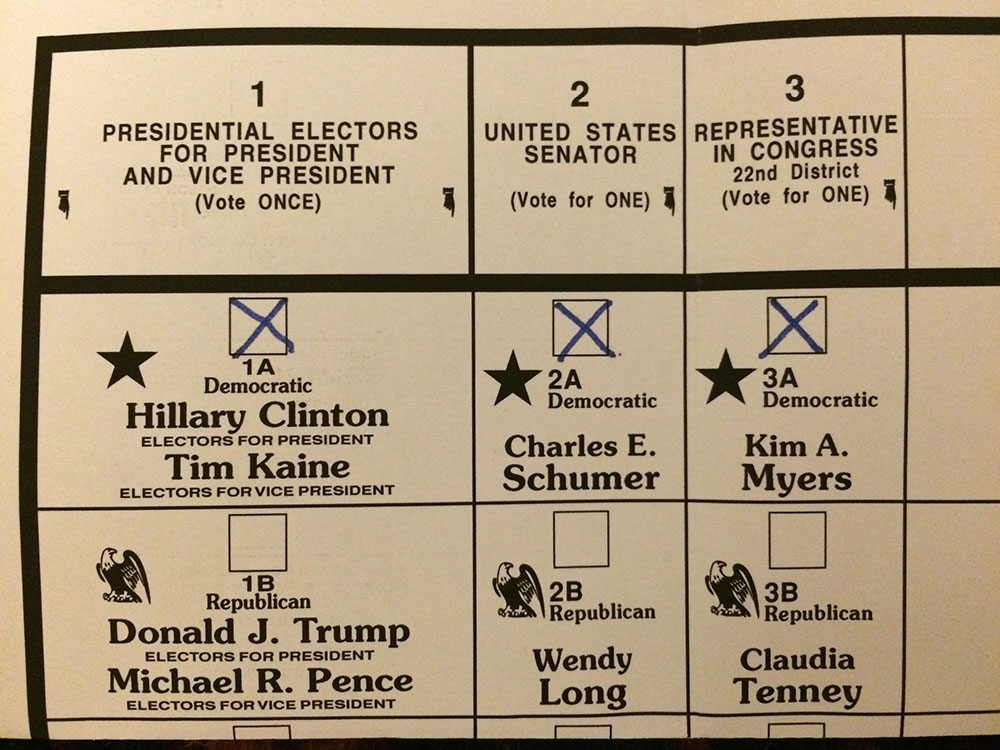Nomination Supreme Court in US is highly politicized
 This year my grandmother will be 97 years old, like the 19th Amendment to the US Constitution. The 19th Amendment guarantees all U.S. women the right to vote and was passed by Congress in 1919. Only during my grandmother’s lifetime have U.S. women been eligible to vote. This November, my grandmother will join three generations of women in my family in voting for Secretary Hillary Clinton, the first female presidential candidate from one of the two major parties. It has taken American democracy 228 years - and almost 100 years of women’s franchise - to have a female candidate in this position.
This year my grandmother will be 97 years old, like the 19th Amendment to the US Constitution. The 19th Amendment guarantees all U.S. women the right to vote and was passed by Congress in 1919. Only during my grandmother’s lifetime have U.S. women been eligible to vote. This November, my grandmother will join three generations of women in my family in voting for Secretary Hillary Clinton, the first female presidential candidate from one of the two major parties. It has taken American democracy 228 years - and almost 100 years of women’s franchise - to have a female candidate in this position.
In addition to the opportunity to elect the U.S.’s first female president, the upcoming election is important to me due to its impact on the U.S. Supreme Court and constitutional rights.
The president is granted many powers in the United States constitutional system, including the nomination of Supreme Court Justices. In turn, the Supreme Court is granted certain powers, including the ability to judge the constitutionality of all laws passed by Congress and to uphold the Bill of Rights. This makes the Supreme Court very powerful, with the ability to not only determine constitutional rules, but to also invalidate democratically enacted laws. Moreover, Justices sit for life on the Supreme Court and rule on highly contentious issues in the US like abortion, same sex marriage, and gun control.
In February 2016, conservative Justice Antonin Scalia died, creating a vacancy on the Supreme Court. It fell to President Obama to nominate a replacement Justice and for the U.S. Senate to give its “advice and consent”. During his presidency, Obama has already appointed two (female) Justices. In March 2016, President Obama nominated the eminently qualified Judge Merrick Garland. However, the Senate, with a majority of Republicans, refused to consider Garland’s nomination.
Today’s Republican Senate majority is the first in United States history to refuse to consider any Supreme Court nominee by the President. As can be seen, the Supreme Court plays a different role in the United States than in countries like the Netherlands, and the appointment of judges is highly politicized. The Republican Senate majority leader Mitch McConnell has claimed that as a matter of principle, they will block any Obama nominee to the Court, and will wait until the next President elected this November makes a nomination.
The Senate Republicans hope that their candidate, Mr. Donald Trump, will win the election and nominate the next Justice to the Court, securing Scalia’s conservative legacy. Trump has already released a list of conservative people he would consider nominating. However, this Republican plan might backfire if there is a Democratic victory this November, as Hillary Clinton may nominate someone younger and more liberal than the moderate Garland.
Raising the stakes of the election, it is likely that the president elected this November will appoint between two and four Justices, greatly shaping the Supreme Court and its rulings on fundamental rights issues in the United States for decades to come.
